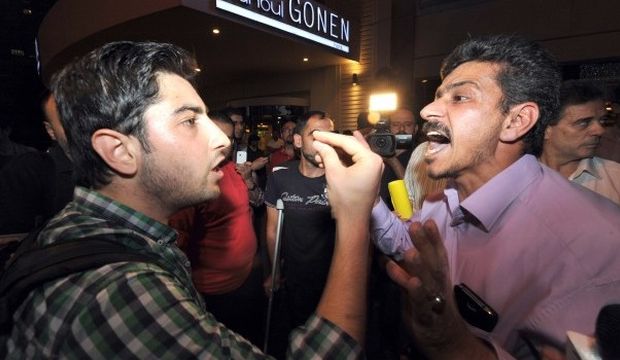Not many would disagree that the level of discourse among the Syrian opposition some three-and-a-half years after the eruption of the uprising in Syria is currently in a sorry state.
In contrast to what it should be in terms of seriousness, responsibility, and the ability to identify and discuss problems realistically, it just doesn’t measure up. Nor can it help find solutions to these problems, which renders it marginal and without influence, detached from its basic tasks.
More importantly, it is too general and does not address specific demands. It focuses on general slogans instead of meaningful demands and objectives.
It is a discourse of conflict rather than conciliation, and focuses too much on a few details without considering their links with the larger issues. It is also confused, and sometimes gives the wrong impression. Often it is even contradictory to the extent that the listener is unable to recognize the objective of the discourse.
The opposition discourse, as described above, appears in documents and statements, and also in speeches, as well as media interviews and articles. This is not limited to the discourse of opposition figures, but also extends to the discourse of political groups, whether they are parties or alliances, because those who formulate the discourse are members of the leadership of the opposition.
The main reasons for this are twofold. First, the reality is that in the last five decades the Syrian regime’s control of politics and society lowered the level of ideological discussion a great deal. Political groups were banned or strictly controlled by incorporating them into the regime within its “Progressive National Front,” which was led by the Ba’ath Party. Political figures were also excluded and marginalized, exiled or detained, or co-opted by the regime in one way or another.
The second reason for the poor state of the opposition discourse lies in its current circumstances and conditions. Those who, prior to the outbreak of the revolution, had some public profile were forced to adopt the marginalized discourse allowed by the regime, while the words of those who were members of the persecuted internal opposition or in exile were largely hostile and adversarial. The demands of covert existence made it very difficult to develop political and media skills that western politicians take for granted. The ideological, political and organizational differences between the opposition groups and parties resulted in a kind of stereotyping of their communication with the public and other political groups, and most of their statements were either self-glorifying or condemned others, even labeling them as traitors—including people who were their comrades and brothers just a short time before.
Despite the existence of a Syrian opposition for many decades, it has been shaped by the limited opportunities open to its members to properly develop as a public opposition. This can be seen in the brief “Damascus Spring” of the previous decade, when opposition figures who could articulate clear and understandable objections to the regime or give their take on events and developments failed to emerge. Instead, the opposition offered documents and statements, few of which were worthy of consideration—and even those few remained captive to many confused explanations and were full of problems.
The great Syrian revolution, with all its demands for freedom, justice and democracy, provided a historic opportunity for the country’s opposition to make changes and rid its discourse of its problems; but this did not happen. The will of the opposition forces was too weak to break them out of their political and organizational tunnel vision, and those opposition forces which began to form quickly amid the heat of the conflict with the regime—and amid the campaigns of killing, detention and displacement of activists and field commanders—could not create an alternative to the troubled and marginalized discourse used by the opposition.
What is certain is that the poor state of the opposition’s discourse in general does not mean that there were no positive signs regarding their rhetoric and discourse during the last decade—like what appeared in the speech of the formation of the Damascus Declaration for National Democratic Change in 2005, for example, and at the opposition conference in Cairo in 2012. This was clear in defining the aims of the opposition, including the Syrian National Coalition, and was a valuable step towards developing a new discourse, one that is serious and responsible, looks at things realistically, and puts the opposition on course to bringing about real change and taking the Syrians out of the crisis created by the Assad regime. The misery, insignificance, and flaws of the opposition’s discourse are not the inevitable fate of the Syrians, their revolution and the opposition.

Trackbacks/Pingbacks